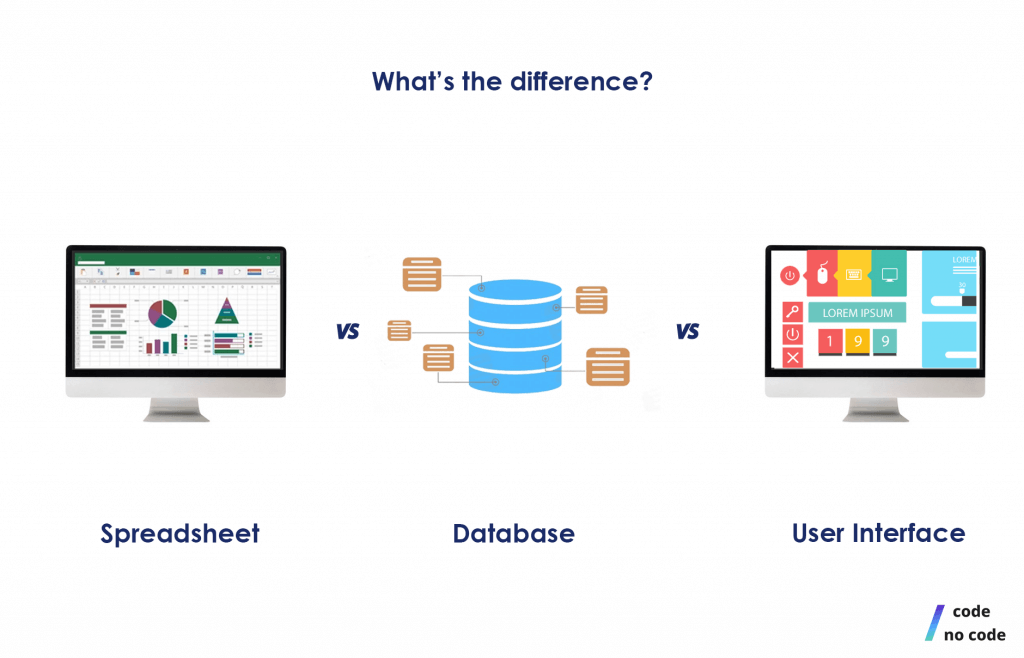Easy Open Platform Data Source Creation Utilizing No-Code Technology
Easy Open Platform Data Source Creation Utilizing No-Code Technology
Blog Article
Discover Exactly How Scalable Databases Can Be Used Without Coding to Enhance Your Business Procedures
In today's hectic service setting, the capacity to take care of and assess information successfully is paramount. no-code. Scalable databases, especially when paired with no-code remedies, provide a transformative approach that empowers non-technical users to simplify operations.
Recognizing Scalable Databases
Scalable databases are essential for contemporary organization operations, permitting organizations to successfully handle raising quantities of information without sacrificing efficiency. These databases are designed to adapt and grow to the altering needs of a company, making certain that they can deal with larger datasets and more complex inquiries as business demands progress.
Comprehending scalable databases includes acknowledging their 2 key types: vertical scaling and straight scaling. Vertical scaling, or "scaling up," includes adding more power (CPU, RAM) to an existing web server to enhance performance. Conversely, horizontal scaling, or "scaling out," entails including a lot more servers to disperse the load, which often leads to greater versatility and fault resistance.
Another critical element is the style of scalable databases, which can be either non-relational or relational. Relational databases, such as MySQL and PostgreSQL, are structured and make use of SQL for inquiries, while non-relational databases, like MongoDB and Cassandra, provide even more flexibility with disorganized information.
Ultimately, recognizing scalable databases is essential for businesses intending to leverage information as a strategic possession, allowing them to continue to be affordable in a progressively data-driven environment.

Advantages of No-Code Solutions
Opening the possibility of no-code services empowers organizations to enhance procedures and improve performance without the need for extensive programs understanding. These systems enable non-technical users to create, customize, and handle databases easily, thus equalizing access to modern technology across teams.
Among the main advantages of no-code remedies is their rate of application. Businesses can promptly deploy applications and automate processes, substantially reducing the time invested in development cycles. This dexterity makes it possible for organizations to react quickly to market adjustments and customer needs, cultivating an one-upmanship.
In addition, no-code platforms reduce reliance on IT departments for day-to-day jobs, permitting technological groups to concentrate on more intricate jobs that require specialized skills. This shift not only enhances resource appropriation yet also advertises advancement within the company.
Cost-effectiveness is another benefit, as no-code solutions can reduce growth and maintenance expenditures. By reducing the demand for coding proficiency, companies can harness the capabilities of their existing workforce without the expenses of hiring extra employees.
Popular No-Code Database Tools
The rise of no-code options has led to the development of numerous database tools that deal with organizations seeking efficiency and access. These tools encourage users with limited technical experience to produce, take care of, and adjust databases flawlessly.

Caspio stands apart for its ability to construct internet applications with no coding. It permits businesses to develop durable data sources and deploy applications rapidly, providing to different industry requirements. Flair uses effective data and user-friendly user interfaces administration capabilities, enabling organizations to construct custom-made applications tailored to their operations.

Usage Instances in Business Operations
Exactly how can businesses utilize database devices to click this enhance their procedures? Scalable databases provide companies with effective abilities to manage and assess information without the need for considerable coding understanding. These devices go to this site can enhance different company processes, ultimately causing improved efficiency and productivity.
One famous usage instance is consumer relationship monitoring (CRM) Organizations can use scalable databases to track customer interactions, preferences, and feedback, enabling personalized interaction and much better solution. By centralizing this details, groups can team up better and reply to client requirements in real-time.
An additional substantial application is inventory administration. Firms can utilize no-code database tools to keep track of supply degrees, track shipments, and projection need. This makes sure ideal inventory degrees, lowers waste, and lessens stockouts.
Additionally, job management can take advantage of scalable databases by allowing groups to handle tasks, deadlines, and sources in a linked system. With real-time updates and data visualization, task managers can make informed decisions.
Starting With Execution
Applying scalable databases in service operations requires an organized technique to make certain successful integration and application. The initial step is to perform a detailed demands assessment, recognizing certain service requirements, data kinds, and anticipated growth patterns. This fundamental understanding will assist the option of the suitable database solution.
Following, choose a straightforward, no-code database platform that lines up with your operational objectives. no-code. Lots of modern-day remedies offer instinctive interfaces, enabling non-technical individuals to handle information properly. After picking a system, develop a clear information architecture that read this article outlines exactly how data will certainly be arranged, accessed, and preserved
Training is essential; make sure that employee are outfitted with the needed skills to use the data source. Consider providing tutorials or workshops to familiarize team with the system's capabilities.
Conclusion
To conclude, the combination of scalable databases through no-code services provides considerable advantages for company operations. These systems empower non-technical users to efficiently handle and examine information, assisting in improved decision-making and cooperation. By adopting tools such as Airtable and Concept, companies can lower and enhance processes dependence on IT sources. Ultimately, leveraging these technologies can cause enhanced productivity and functional efficiency, placing organizations for continual growth in a competitive landscape.
One popular no-code database device is Airtable, which incorporates the performance of a spread sheet with the power of a data source.Just how can businesses leverage database tools to improve their operations? Companies can make use of scalable databases to track customer communications, choices, and responses, allowing personalized communication and much better service.Implementing scalable data sources in service operations needs a structured approach to make certain effective combination and use.In conclusion, the assimilation of scalable data sources through no-code services offers significant benefits for company procedures.
Report this page